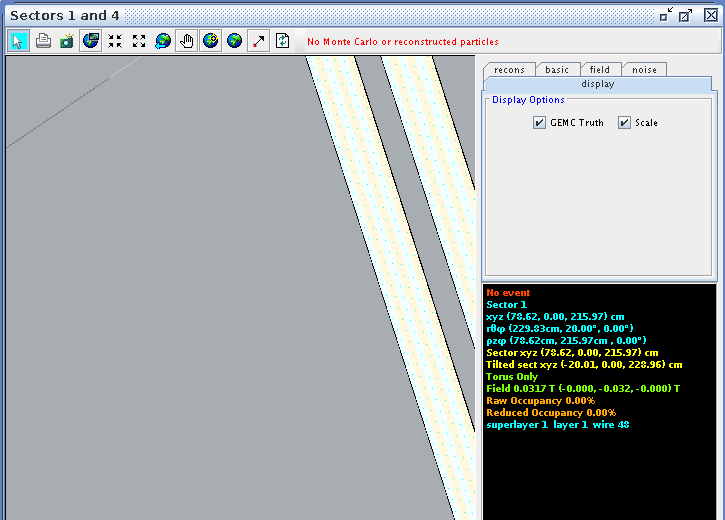Difference between revisions of "Test in Plane for Theta at 20 degrees and Phi at 0"
Jump to navigation
Jump to search

| Line 1: | Line 1: | ||
| + | <center><math>\textbf{\underline{Navigation}}</math> | ||
| + | |||
| + | [[VanWasshenova_Thesis#Determining_wire-theta_correspondence|<math>\vartriangleleft </math>]] | ||
| + | [[VanWasshenova_Thesis#Determining_wire-theta_correspondence|<math>\triangle </math>]] | ||
| + | [[CED_Verification_of_DC_Angle_Theta_and_Wire_Correspondance|<math>\vartriangleright </math>]] | ||
| + | |||
| + | </center> | ||
| + | |||
| + | |||
==Test for <math>\theta=20</math> and <math>\phi=0</math>== | ==Test for <math>\theta=20</math> and <math>\phi=0</math>== | ||
Revision as of 17:27, 15 May 2017
Test for and
Substituting in the values found earlier for the case of and
Since
The distance from focal point 1 is:
This is the radius from focal point 1, which is to be expected since the y component is equal to zero for
The focii are located at
This implies that with respect to the origin, x', we find
This is verified with CED

Since the x' dimension is the hypotenuse in a right triangle of 65 degrees